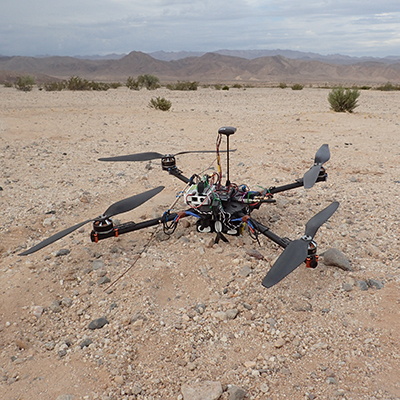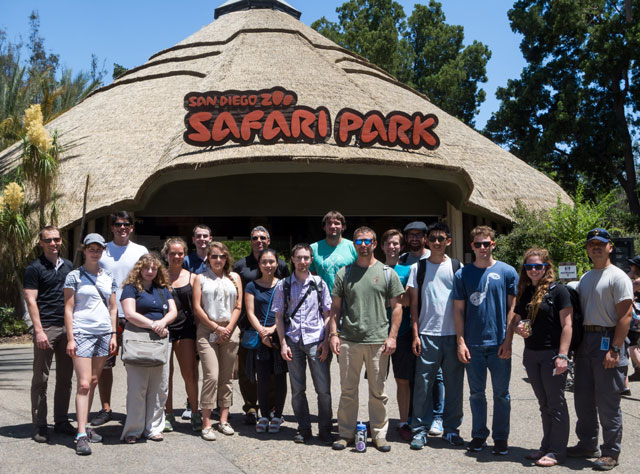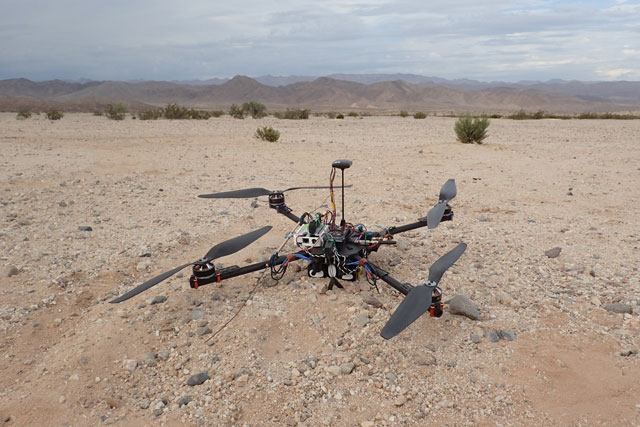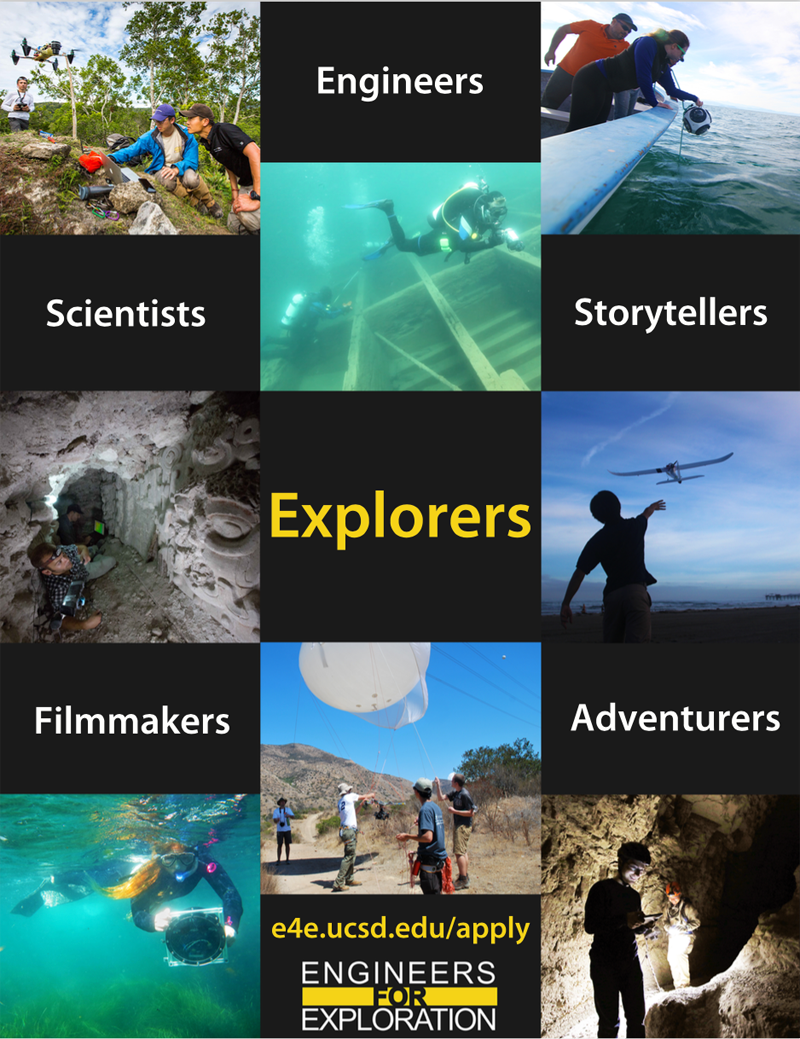
University students have barely one week left to apply for a research internship at the University of California San Diego for summer 2017 to work on technologies that can be used by explorers in the lab or on field expeditions.

the San Diego Safari Park in their spare time during
Summer 2016 internships funded through the
Engineers for Exploration Research Experiences for
Undergraduates (REU) program.
The university’s Engineers for Exploration student program receives funding from the National Science Foundation to run a Research Experiences for Undergraduates (REU) summer program. The deadline for online applications is Friday, February 17, 2017.
Last year, 12 students from universities across the U.S., Brazil and China worked on projects including embedded systems for underwater camera traps, path planning for aerial vehicles, coral reef classification, and machine learning for identifying humpback whales. They participated in field deployments in Baja California, La Jolla Cove and near the Anza-Borrego desert. And the technologies that they developed were used by scientists in the Cayman Islands, Guatemala, and Mexico.

in the Mojave Desert.. The Radio Collar Tracking
project is one of the initiatives undertaken by
undergraduate students in the Engineers for
Exploration program, a partnership of the
Qualcomm Institute and the Jacobs School of
Engineering.
According to Engineers for Exploration co-director, Computer Science and Engineering professor Ryan Kastner, there is funding for at least 10 undergraduates this coming summer. The program will run for 10 weeks from June 25 through September 1. Accepted students receive a stipend of $500 per week. Together with a partial travel stipend for students outside of San Diego. Only full-time undergraduate students are eligible to apply for the residential program, which gives students the opportunity to perform full-time research on the UC San Diego campus. Applicants must be a U.S. citizen or permanent resident of the U.S.

Engineers for Exploration (E4E) is also inviting CSE and other UC San Diego students to get involved with the program’s application-driven engineering research projects during the regular academic year. "The program runs year-long and can provide class credit, expeditions to exotic places, and applying the knowledge that you learn in your classes to real-world scientific problems,” said CSE’s Kastner, pointing to more information on the program website.
Interested students are urged to attend one of the E4E weekly meetings scheduled for every Monday in February and March at 11am. The meetings take place in the Calit2 Room 5004 on the fifth floor of Atkinson Hall. Alternatively, students can contact Kastner directly or one of his co-directors of the program: Qualcomm Institute research scientist Albert Lin, or the institute’s engineering manager, Curt Schurgers.
The E4E website calendar also lists upcoming meetings of specific team projects, including the Machine Learning Projects related to ecological classification of jungles and coral reefs and the Maya Archaeology Project, which hold their weekly meetings, respectively, every Tuesday and Wednesday at 3pm. The Radio Collar Tracker (RCT) team, which is developing technology in collaboration with researchers at the San Diego Zoo, meets on Monday every week at noon (after the overall E4E meeting). Student leaders of the individual projects can also be contacted for more information: Nathan Hui (RCT) at nthui@eng.ucsd.edu; Eric Lo (Machine Learning) at eklo@ucsd.edu; and Quentin Gautier (Maya Archaeology) at qkgautier@eng.ucsd.edu.
According to the E4E website, the program is looking for "undergraduate students interested in applying the theoretical knowledge learned in academic classes to solving real-world problems." Many students are from CSE and other engineering departments, but any motivated student can join, regardless of major. Students should be enthusiastic about engineering, technology, and exploration in order to participate in the research and development projects. Students must be self-motivated and excited about learning new technical skills, no matter their academic backgrounds. “We especially encourage students with an interest in photography and filmmaking to join,” said Kastner, since E4E’s field expeditions provide extraordinary opportunities for creating exciting media.
Related Links

